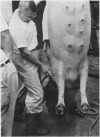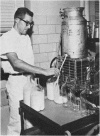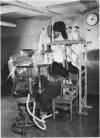Abstract
Germ-free swine were routinely procured by both hysterectomy and hysterotomy (Caesarian section). By means of light-weight portable equipment, piglets could be obtained and transported to the laboratory (without contamination) over distances in excess of 100 miles. The isolators employed in rearing were constructed of stainless steel and flexible plastic film. At weekly intervals, fecal swabs and waste from the floor of the isolator were cultured on blood-agar and in thioglycolate broth, as well as being examined microscopically for the presence of bacteria, yeast, and fungi. The presence of pleuropneumonia-like organisms (PPLO) and viruses in such material was not demonstrable, either by the use of enriched PPLO media or primary porcine-kidney cell cultures. Tissues, body fluids, and cecal contents of piglets sacrificed specifically for microbiological examination were also negative for PPLO, viruses, bacteria, yeast, and fungi. Prenatal infestations by ascarids were not observed. Nutritional problems related to rearing of germ-free piglets, such as hypoglycemia, were not encountered, and the use of an autoclaved commercial sow's milk replacer proved quite satisfactory. The temperature to which piglets were subjected during the first few days of life, however, was very important. The isolator design and application of gnotobiotic techniques to the procurement and rearing of a large germ-free animal such as the pig proved feasible and less difficult than anticipated.
Full text
PDF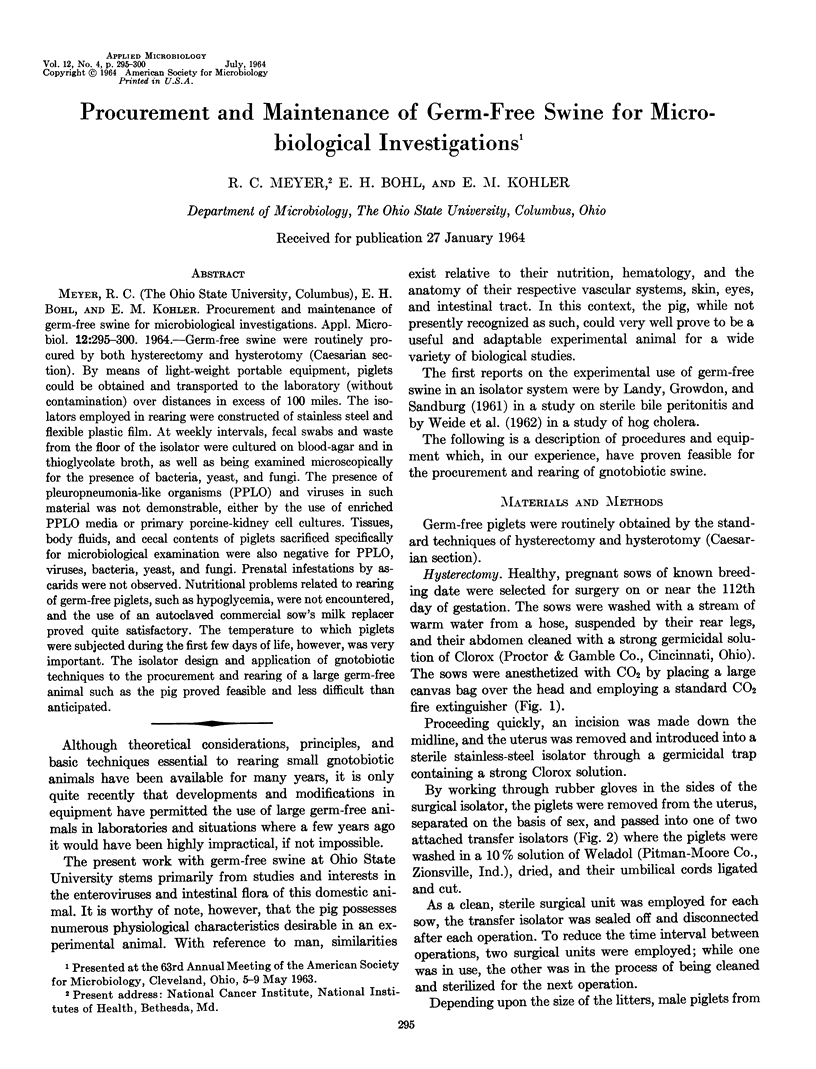
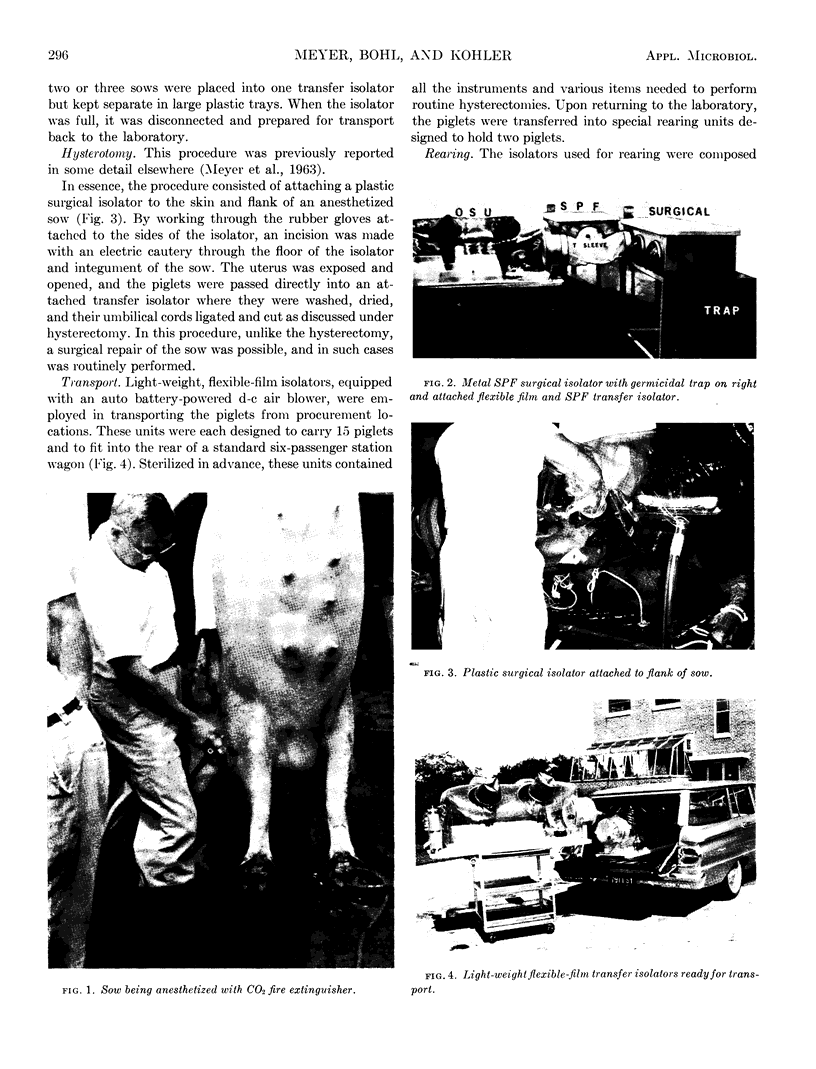
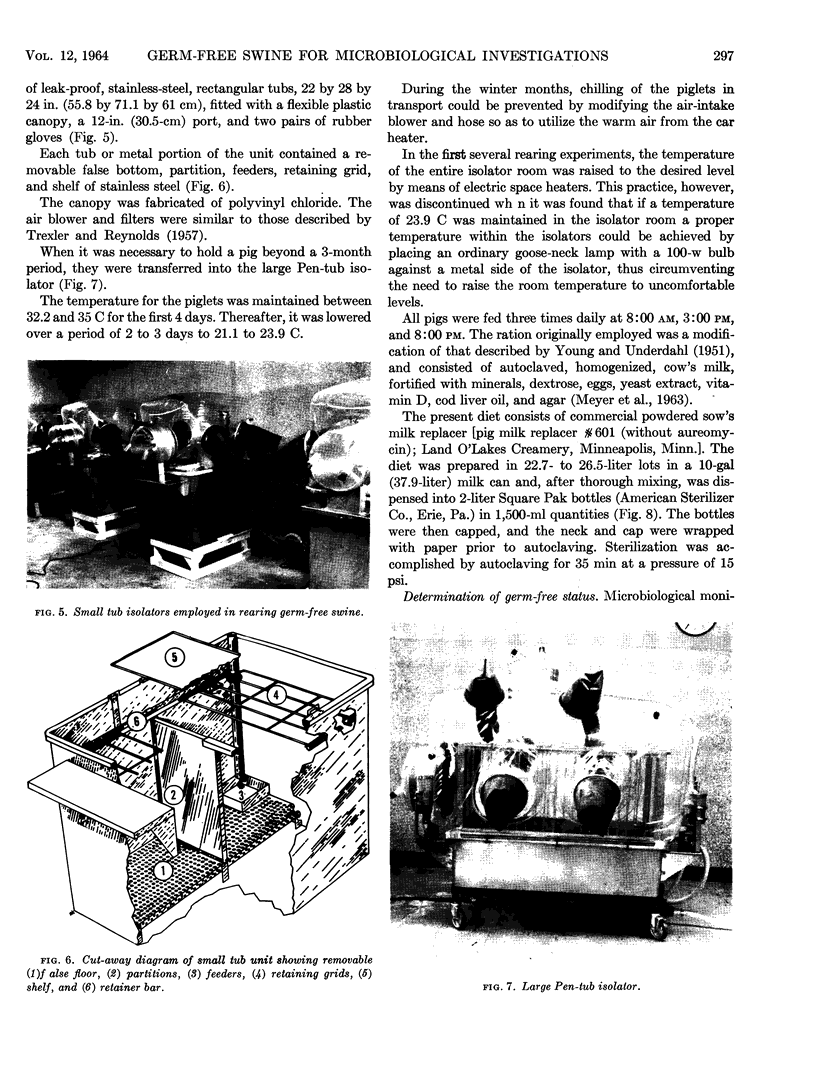
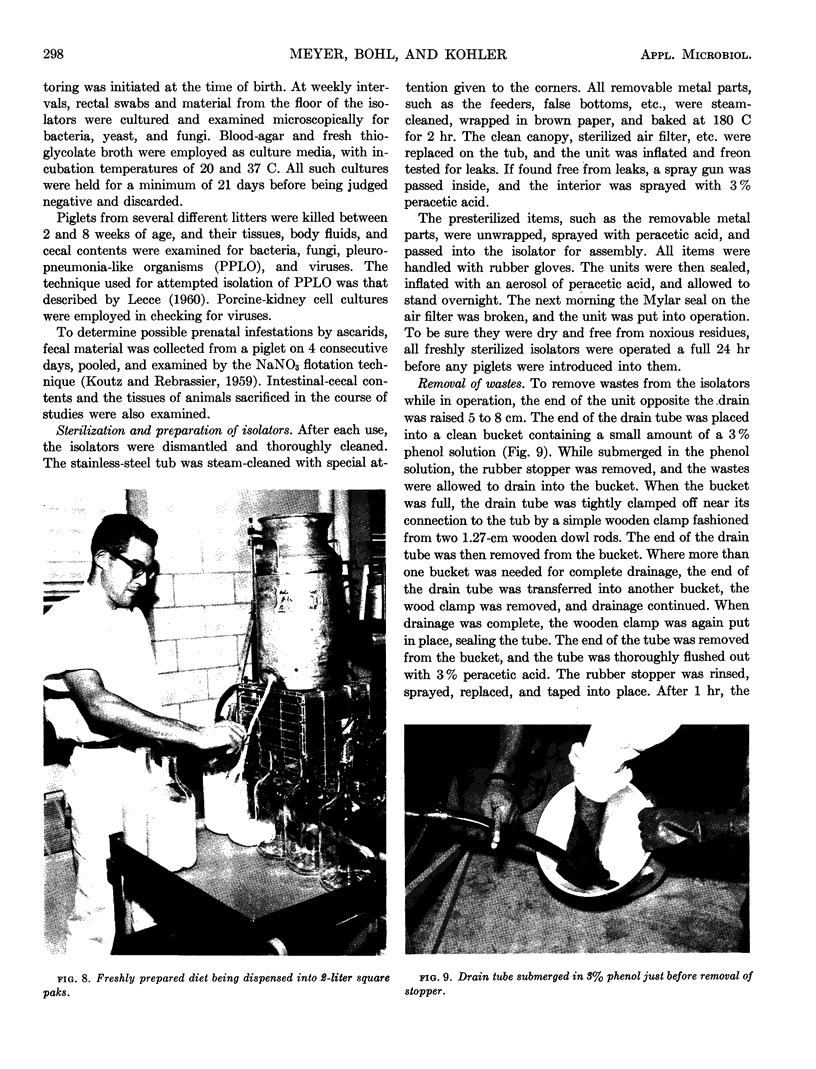
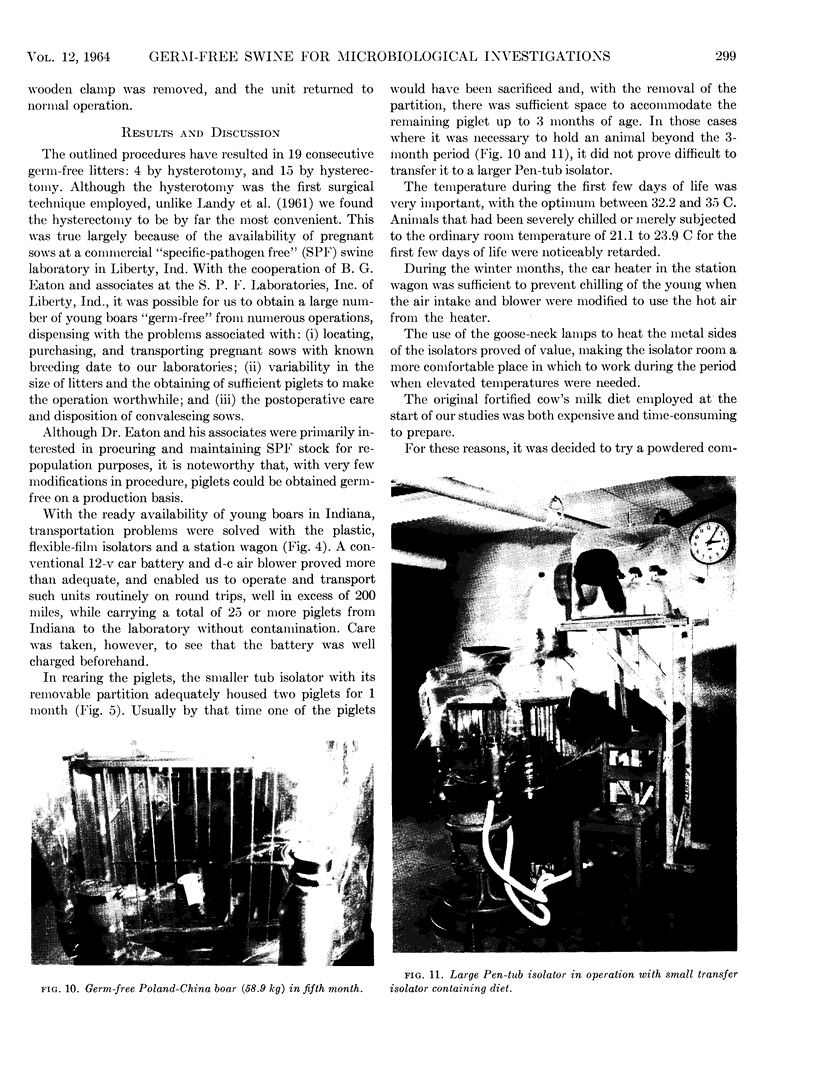
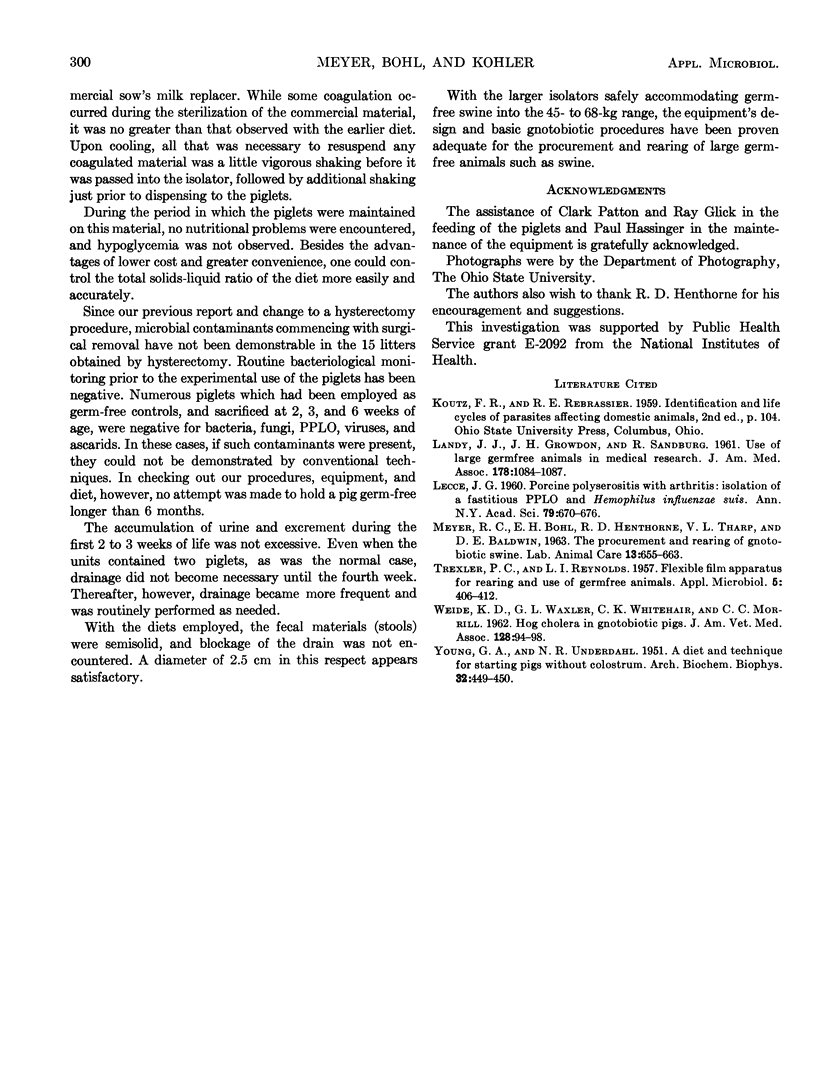
Images in this article
Selected References
These references are in PubMed. This may not be the complete list of references from this article.
- LANDY J. J., GROWDON J. H., SANDBERG R. L. Use of large, germfree animals in medical research. JAMA. 1961 Dec 16;178:1084–1087. doi: 10.1001/jama.1961.73040500001005. [DOI] [PubMed] [Google Scholar]
- LECCE J. G. Porcine polyserositis with arthritis: isolation of a fastidious pleuropneumonialike organism and Hemophilus influenzae suis. Ann N Y Acad Sci. 1960 Jan 15;79:670–676. doi: 10.1111/j.1749-6632.1960.tb42741.x. [DOI] [PubMed] [Google Scholar]
- TREXLER P. C., REYNOLDS L. I. Flexible film apparatus for the rearing and use of germfree animals. Appl Microbiol. 1957 Nov;5(6):406–412. doi: 10.1128/am.5.6.406-412.1957. [DOI] [PMC free article] [PubMed] [Google Scholar]
- YOUNG G. A., Jr, UNDERDAHL N. R. A diet and technic for starting pigs without colostrum. Arch Biochem Biophys. 1951 Jul;32(2):449–450. doi: 10.1016/0003-9861(51)90296-2. [DOI] [PubMed] [Google Scholar]



